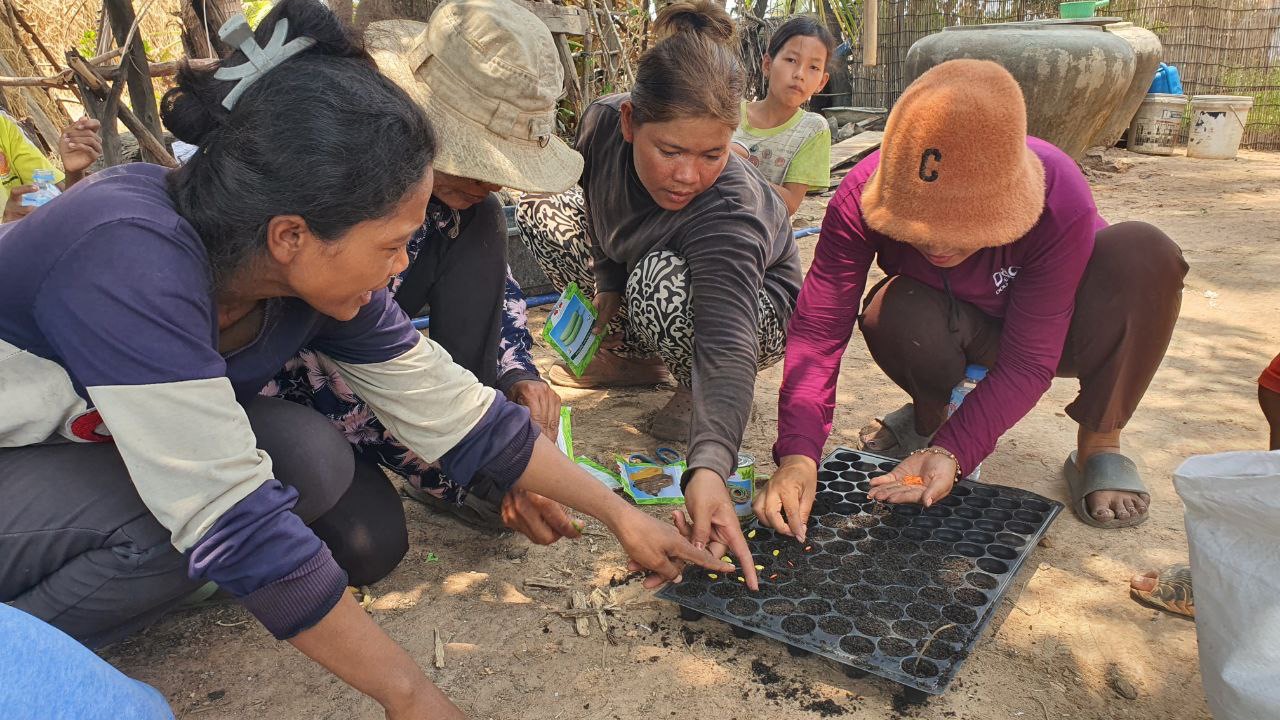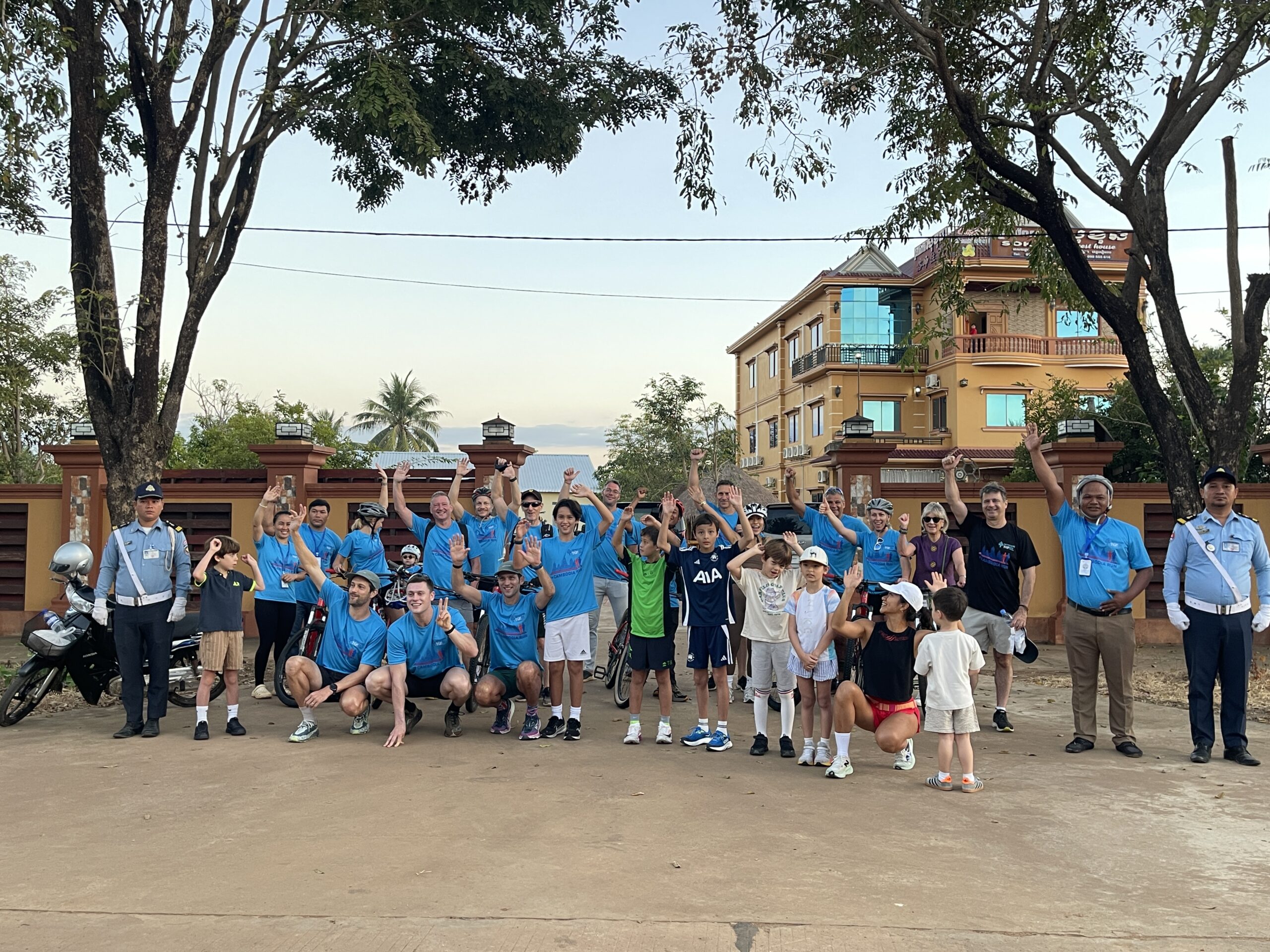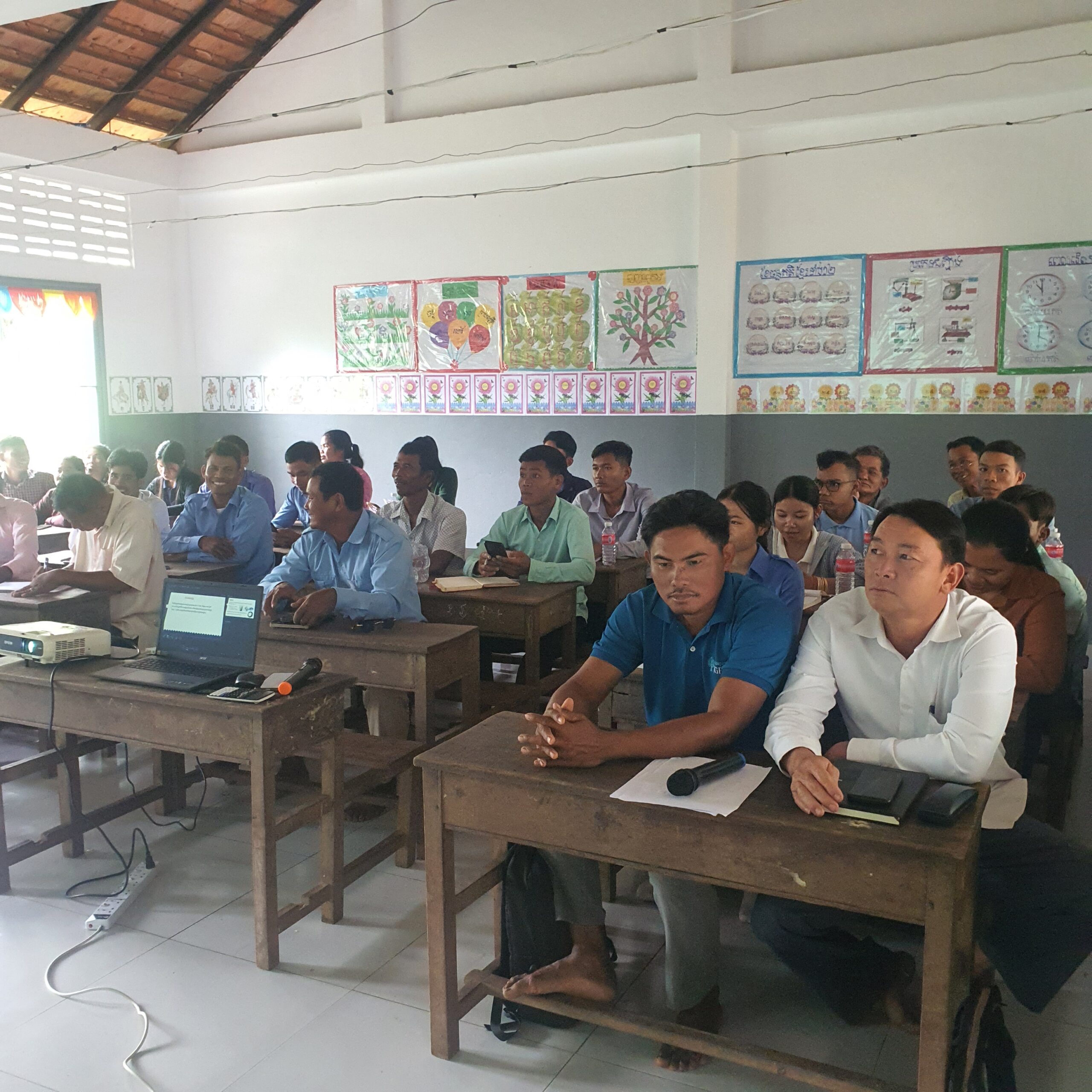As we progress through 2024, TGF’s Nutrition Gardens project continues to thrive, fostering a healthier future for families and communities across our target area.
Empowering Families Through Nature
Our Water, Sanitation, and Health Program team has been actively working with families, especially those with young children affected by malnutrition. Through hands-on training and essential resources, we assist them in creating home gardens rich in nutritious produce.
Utilizing the Benefits of Mushrooms
The introduction of mushroom cultivation techniques in 2024 provides families with additional access to a sustainable, nutrient-rich food source. This practice supplies essential vitamins and minerals, contributing to improved family diets and overall well-being.
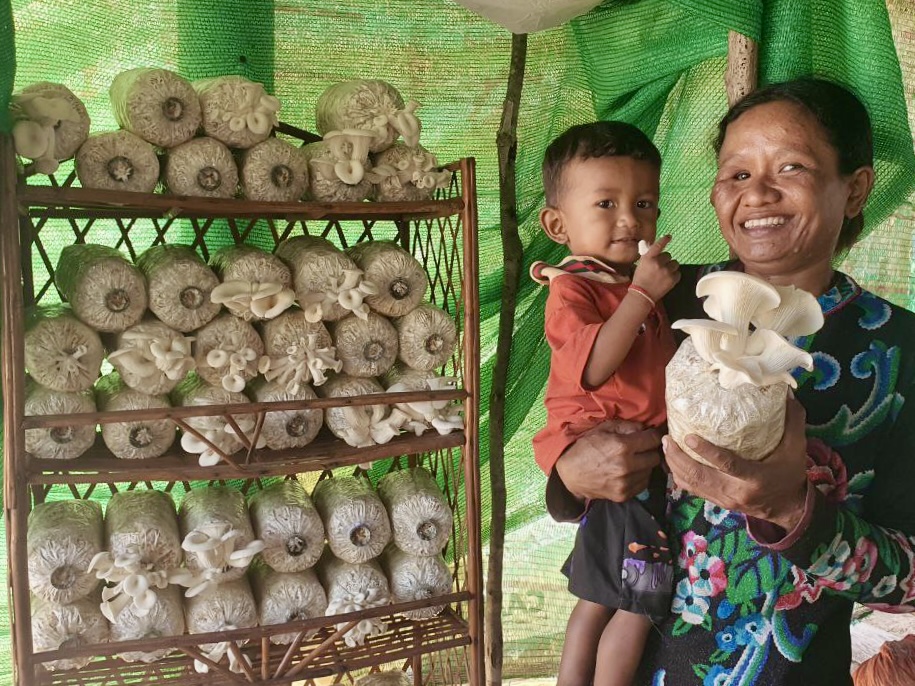
Overcoming Challenges
Despite the difficult dry season conditions in 2024, our team has supported families in maintaining healthy and productive gardens. Regular visits provide crucial guidance and encouragement, ensuring that these gardens remain actively used.
Sustainability and Community Engagement
We have also expanded our efforts to two Early Childhood Education (ECE) Kindergartens in Thnal Louk and Ta Nguon, where vibrant vegetable gardens serve as learning spaces and options for parents and community members to learn, grow, and harvest together. These initiatives help young children experience the journey from seed to harvest through play, promoting an appreciation for fresh food. Additionally, our collaboration with Pongro Kraom Health Center has established a vegetable garden that emphasizes the connection between nutrition and overall well-being.
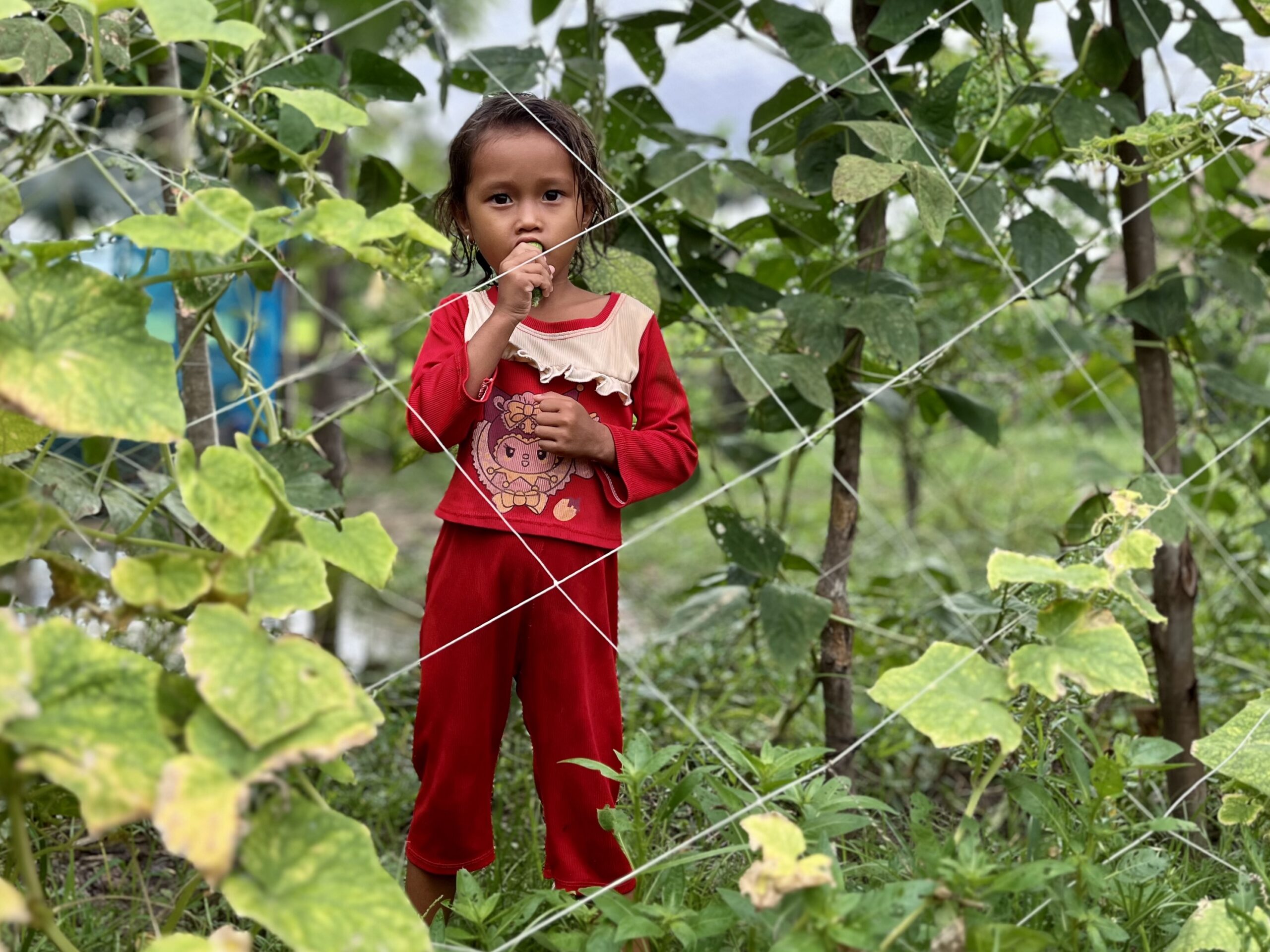
Project Success and Impact
Our recent assessment shows significant positive changes. Families report that children under 5 are consuming 80-90% more vegetables, leading to weight gain, fewer illnesses, and overall improved health. The benefits extend to adults as well, who enjoy a healthier diet, reduced food expenses, and even additional income from selling surplus produce.
The project’s success is evident in the widespread sharing of knowledge and resources among neighbors, promoting a culture of food security and community solidarity. ECE centers have integrated gardens into weekly activities.
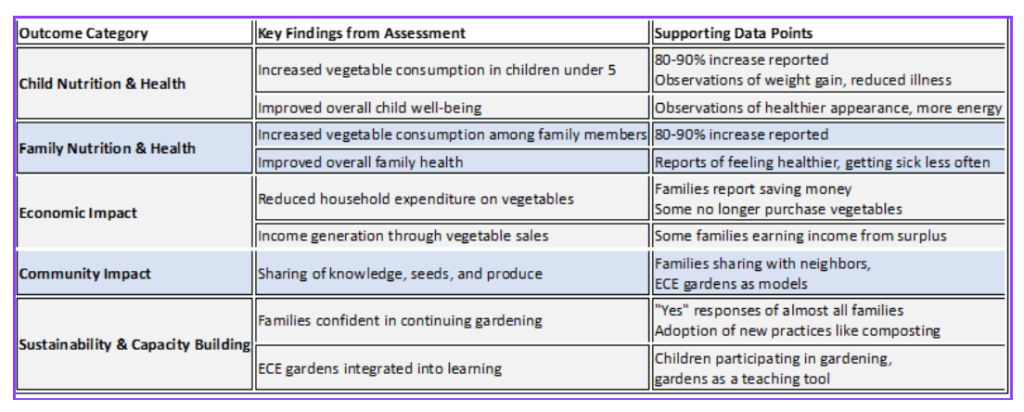
Looking Forward: Sustained Growth and Education
To maintain this positive momentum, we emphasize the need for essential resources such as seeds, composting materials, and child-friendly gardening tools. Targeted training workshops will further enhance gardening skills, focusing on seedling production, natural pest control, and integrating garden maintenance into educational curricula.
For 2025, TGF plans to expand gardens to more kindergartens and even a primary school to reach more young students and their families.
